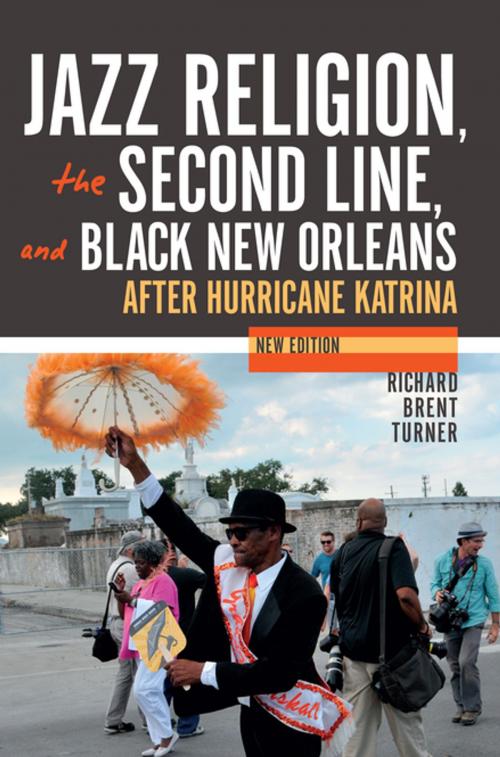Jazz Religion, the Second Line, and Black New Orleans, New Edition
After Hurricane Katrina
Nonfiction, Entertainment, Music, Music Styles, Jazz & Blues, Jazz, Religion & Spirituality, Reference, Ritual & Practices| Author: | Richard Brent Turner | ISBN: | 9780253025128 |
| Publisher: | Indiana University Press | Publication: | October 17, 2016 |
| Imprint: | Indiana University Press | Language: | English |
| Author: | Richard Brent Turner |
| ISBN: | 9780253025128 |
| Publisher: | Indiana University Press |
| Publication: | October 17, 2016 |
| Imprint: | Indiana University Press |
| Language: | English |
An examination of the musical, religious, and political landscape of black New Orleans before and after Hurricane Katrina, this revised edition looks at how these factors play out in a new millennium of global apartheid. Richard Brent Turner explores the history and contemporary significance of second lines—the group of dancers who follow the first procession of church and club members, brass bands, and grand marshals in black New Orleans’s jazz street parades. Here music and religion interplay, and Turner’s study reveals how these identities and traditions from Haiti and West and Central Africa are reinterpreted. He also describes how second line participants create their own social space and become proficient in the arts of political disguise, resistance, and performance.
An examination of the musical, religious, and political landscape of black New Orleans before and after Hurricane Katrina, this revised edition looks at how these factors play out in a new millennium of global apartheid. Richard Brent Turner explores the history and contemporary significance of second lines—the group of dancers who follow the first procession of church and club members, brass bands, and grand marshals in black New Orleans’s jazz street parades. Here music and religion interplay, and Turner’s study reveals how these identities and traditions from Haiti and West and Central Africa are reinterpreted. He also describes how second line participants create their own social space and become proficient in the arts of political disguise, resistance, and performance.















